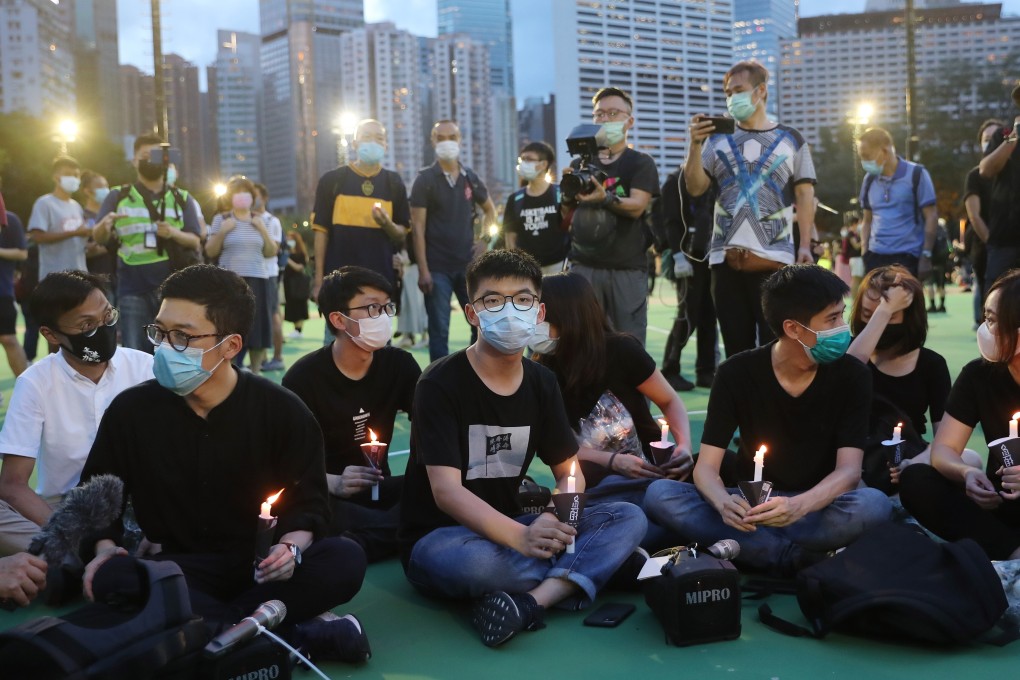Hong Kong activist Joshua Wong jailed for 10 months over unauthorised Tiananmen Square vigil, 3 others get from 4 to 6 months
- Judge Stanley Chan says 24-year-old opposition figure and district councillors Lester Shum, Tiffany Yuen and Jannelle Rosalynne Leung ‘openly defied the law’, and were ‘wise’ to plead guilty
- Sentencing fails to distinguish between peaceful and violent assemblies, vigil organisers argue outside courtroom

Three district councillors – Lester Shum, 27, Tiffany Yuen Ka-wai, 27, and Jannelle Rosalynne Leung, 26 – were also sentenced for their roles in the June 4 event in Victoria Park, with Shum receiving six months, and Yuen and Leung getting four months each.
The four pleaded guilty last week to knowingly taking part in an unauthorised assembly, an offence punishable by five years in prison.
[The four defendants] openly defied the law. The only mitigating factor is their guilty plea
The jail terms mean Shum, Yuen and Leung could lose their seats, given language in the District Councils Ordinance stating that an elected member is “disqualified from holding office” if he or she is jailed for more than three months. However, the Post understands all four defendants are considering appeals against their sentences.
District Judge Stanley Chan Kwong-chi said it was clear the defendants’ actions had been “deliberate and premeditated”, at a time when Hong Kong’s public order situation remained volatile in the aftermath of the unprecedented social turmoil of 2019.
Chan said the court could not underestimate the event’s potential risk factor, as emotions could have run high, and the unruly might have taken advantage of that to incite violence.
“[The four defendants] openly defied the law,” Chan said. “The only mitigating factor is their guilty plea.”